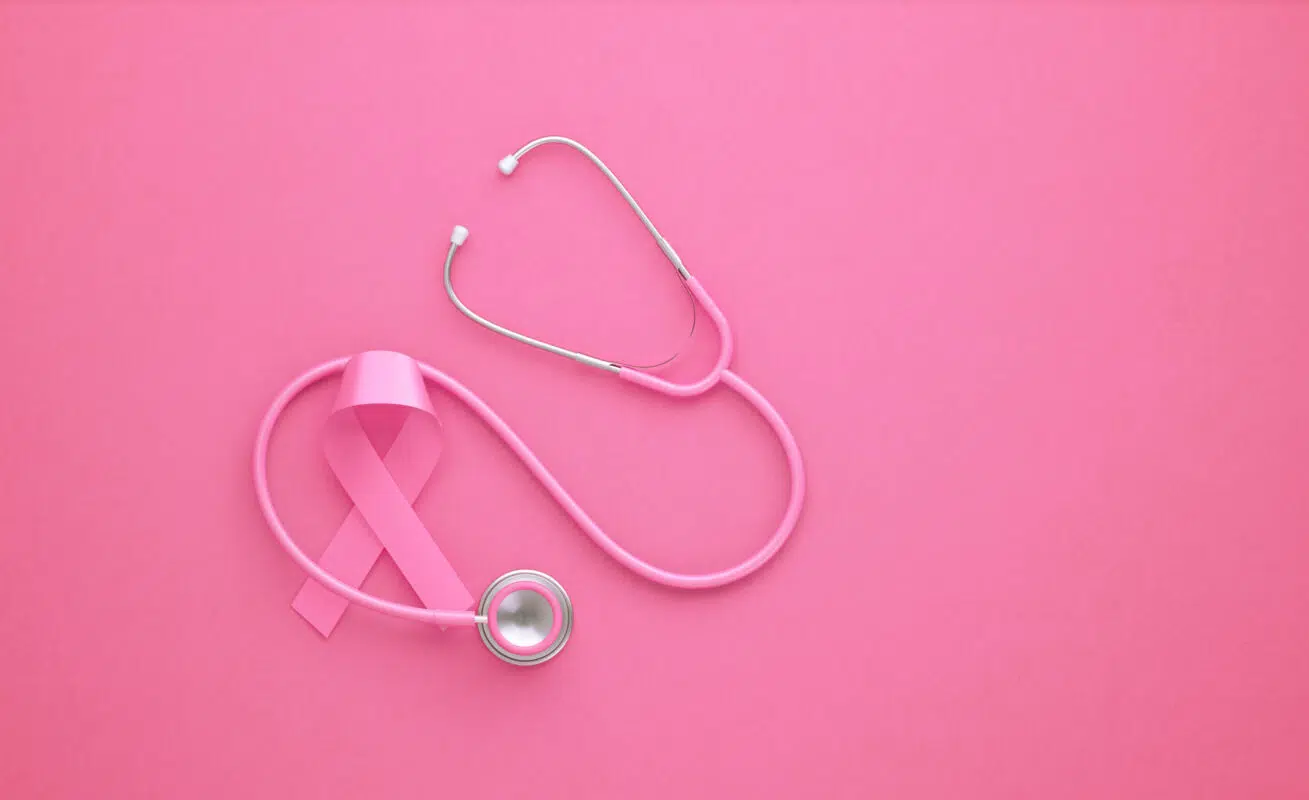When it comes to breast cancer, there are many risk factors women can’t change: genetic mutations, dense breasts, family history, age.
But according to experts, there are also some reasons females living now may be more likely to get breast cancer than prior generations.
“It’s important to be aware of the risks you cannot change,” says Laura Apyan, Women’s Health Case Manager and Certified Lactation Counselor (CLC) at BlueCross BlueShield of Tennessee. “But once you have the facts, it’s even more important to focus on addressing the risks you can change. Have mammograms as recommended by your PCP, and be diligent about monthly breast self-exams.”
According to the National Breast Cancer Foundation, 40% of diagnosed breast cancers are detected by feeling a lump. So establishing a regular breast self-exam can truly save your life.
12 reasons modern life may increase breast-cancer risk
1. Females are living longer than ever before
Females live nearly 30 years longer today than they did a century ago. Aging is the biggest risk factor for breast cancer because genes:
- Have more time to develop harmful mutations such as cancer, and
- Are less capable of repairing genetic damage.
2. Puberty and breast development start earlier
Over the past few decades, females around the world have started puberty earlier. The exact reasons are unclear, but experts have suggested all of the following may play a part:
- higher body mass index (BMI),
- nutritional factors,
- chemicals in the environment and,
- toxic stress.
Regardless of the reason, the earlier a female gets her first period, the higher her lifetime risk for breast cancer. The reason is similar to why risk factors increase with age. The earlier breasts are formed, the longer they’re exposed to substances that may change their makeup. This can increase breast-cancer risk later in life.
Females who get their periods at age 16 have a 50% lower risk of breast cancer than those who get periods before age 12.
3. Females are delaying pregnancy/not having full-term pregnancy
When breast cells are made during adolescence, they’re considered “immature” until a female’s first full-term pregnancy. That makes them more likely to act in irregular, cancer-causing ways. Today, more people get pregnant at older ages or never have a full-term pregnancy, so their risk of breast cancer increases.
Breastfeeding & breast cancer prevention: What’s the connection?
4. Fewer people breastfeed and more breastfeed for less time
Breastfeeding lowers breast-cancer risk by forcing breast cells to mature further. It also causes genetic changes that protect against breast cancer.
Breastfeeding guide for Tennessee moms (plus 5 tips to help)
“Less than 1 in 5 women in Tennessee are able to feed infants only breast milk for the first 6 months,” says Apyan. “If you are dedicated to breastfeeding and are having issues, the best thing you can do is ask for help. I’ve worked with nurses trained in lactation who’ve had challenges breastfeeding their own babies. That’s okay! Whatever you can do is wonderful for your baby.”
5. More adolescents and females take hormones
Taking extra hormones can cause extra breast-cell growth, which increases breast-cancer risk.
Commonly prescribed hormones linked to a small increase in risk include:
- Hormone replacement therapy, which is often used to reduce menopause symptoms
- Birth control pills used for pregnancy prevention or to treat conditions such as endometriosis
6. More females are overweight or obese
Obesity can increase breast-cancer risk in many ways:
- Fat cells make estrogen and store environmental pollutants that can act like estrogen. Estrogen promotes the growth of breast cancer.
- Diabetes, which is more common in obese individuals, can trigger extra hormonal activity. This can lead to too much breast cell growth, possibly increasing risk.
- Obesity is associated with chronic inflammation. This can damage cells and make it harder for the immune system to repair them. Unrepaired cell damage may increase risk.
- Overweight mothers are more likely to have overweight babies. Being overweight at birth is a risk factor.
- Overweight females are more likely to experience early-onset puberty, which can increase risk.
Over the past 30 years, obesity in the U.S. has increased by 70% for adults and 85% for children.
What is BMI and why does it matter?
7. More females are physically inactive
Regular exercise helps lower breast-cancer risk by:
- managing weight,
- postponing early-onset puberty and,
- regulating hormone and blood-sugar levels that can trigger extra cell activity.
- Sitting all day, hours of screentime, driving most places limits physical activity. This can also increase breast cancer risk.
In Tennessee, more than 30% of people are physically inactive.
8. More females drink alcohol
Alcohol can increase estrogen production and interfere with the body’s ability to break estrogen down, which can increase breast-cancer risk. In recent years, alcohol use by women has gone up. More women drink and consume more alcohol when they do.
10 facts to know about alcohol + how to gauge your alcohol use
9. Many females still smoke
Smoking causes cell damage and impairs the healing process, which can increase breast-cancer risk.
More than 20% of people in Tennessee smoke.
10. Vitamin D levels are low
Vitamin D helps regulate normal breast cell growth. For most women, the main source of vitamin D is healthy sun exposure. However, modern life often keeps people indoors. This can lead to decreased levels of vitamin D. In fact, 42% of the U.S. population is vitamin D deficient.
How to get enough vitamin D in the winter
11. Women are stressed
Females often take care of everyone in their household ahead of their own health needs. That causes stress, which can lead to high levels of cortisol, a hormone that can have negative effects on the immune system.
12. Females are exposed to more environmental pollutants
Widespread use of chemicals in modern life changes the chemical makeup of environments — inside and outside people’s bodies. Some pollutants directly damage genes. Others can disrupt the normal hormonal balance and lead to abnormal breast cell growth. Females who are exposed to chemicals during breast development may be at increased risk of breast cancer.
Reduce your risk with 7 lifestyle changes
Read this WellTuned article for details on the 7 tips below:
- Exercise most days
- Drink alcohol in moderation, if at all
- Avoid tobacco
- Adopt a healthy diet
- Consider your choice of contraception
- Understand the role of pregnancy and breastfeeding
- Limit hormone therapy






Comments